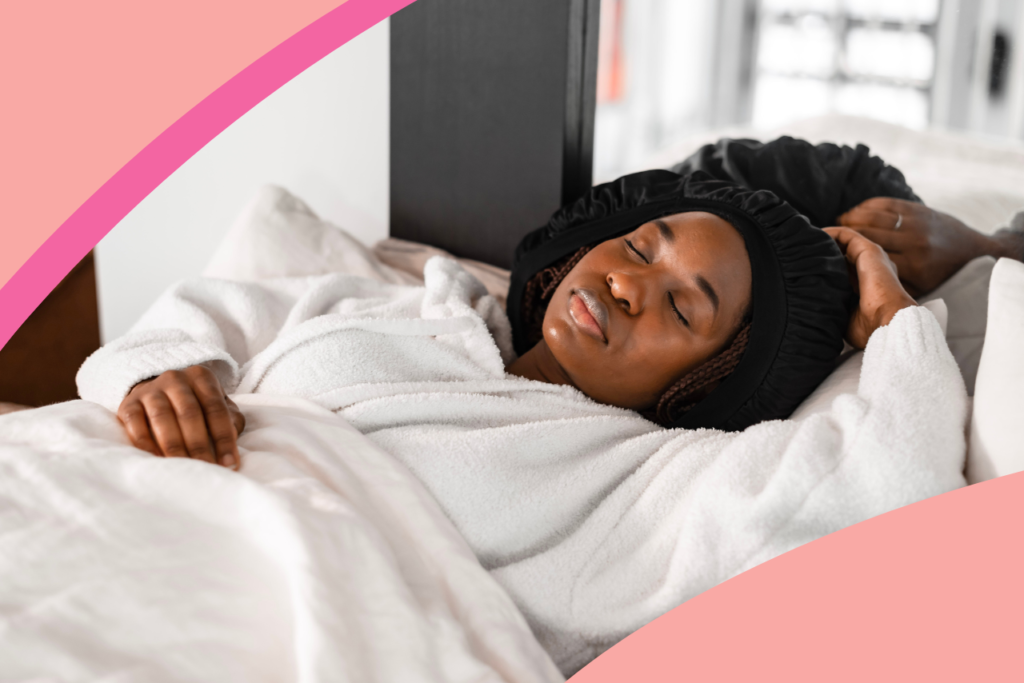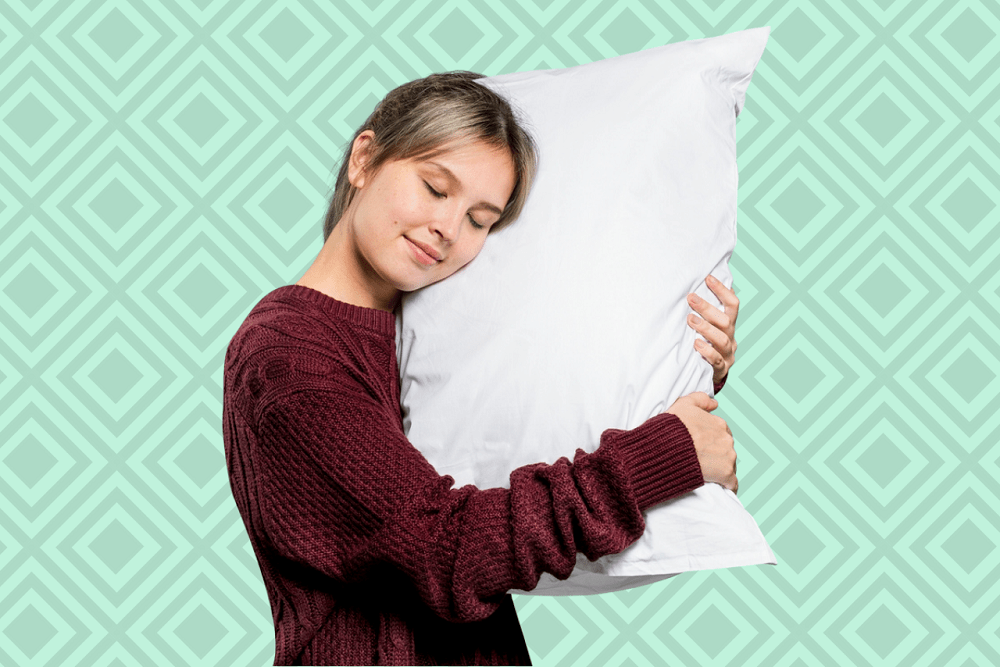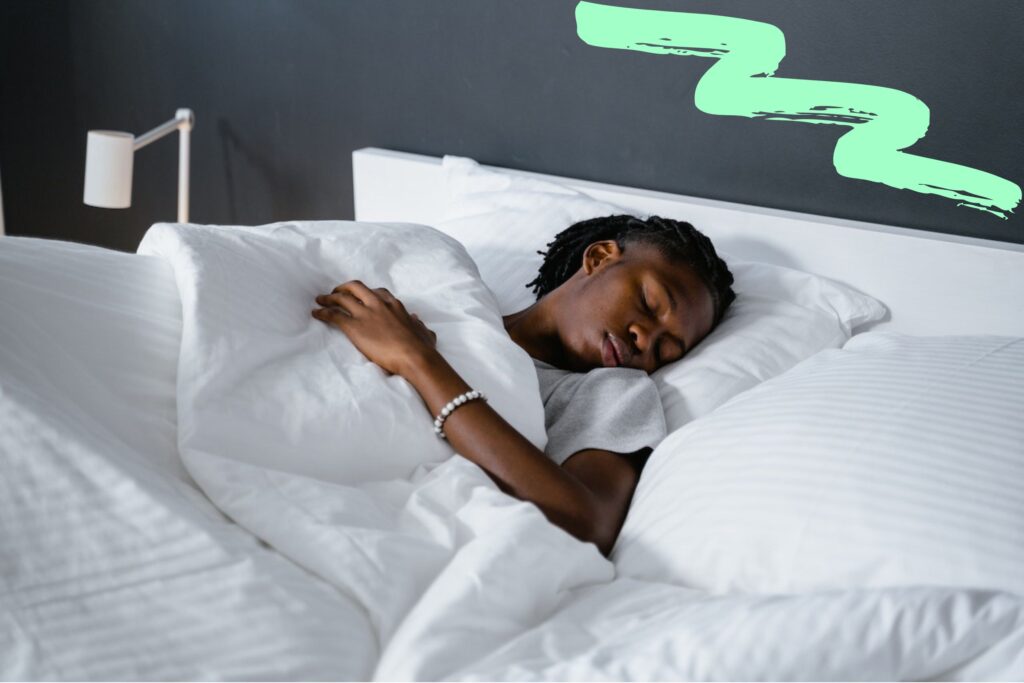If you’re reading this through bleary Monday morning eyes, wondering if they even closed properly last night, then you’re likely one of the thirty-eight per cent of Brits who never achieve the recommended eight hours of sleep.
Even when people do get to bed on time, they may not be getting good quality sleep. You know the type; where you sleep straight through, undisturbed, and leap out of bed in the morning with renewed vigour and focus. It’s a rare thing. Instead, many people struggle to drift off, while others have trouble staying asleep. On the flip side, some may sleep for eight hours or longer, but they may not find their sleep all that restful.
And it’s that properly nourishing stuff we’re coveting today. Or, should we say tonight, and every night from there on in. But what can you do to make sure you’re getting good quality sleep and waking up refreshed every day? Here’s a start; our 8 things to try to get more restorative sleep.
Set Your Internal Clock
The first step in sleeping better (the emphasis here is on better, not just longer) is to reset your body’s internal clock. Sleep cycles are governed by the circadian rhythm. In turn, the circadian rhythm adjusts to patterns of light, melatonin release, and more.
The good news is you can adjust your circadian rhythm to a degree, simply, and with only a little will power and the use of your alarm. Yep, going to bed and waking up at the same time every day helps you get into a properly sleep-healthy rhythm. This means you’re awake when it’s time to get up, and you’re ready to hit the hay at bedtime.
When you go to bed at a different time every night or stay up very late, you throw out your body’s natural rhythm. In turn, you may find it harder to wake up in the morning or more difficult to fall asleep the next night. Routine is good sleep’s best friend, make no mistake.

Turn Off Screens & Unwind, Well In Advance
Practicing some good sleep hygiene can make following your new sleep schedule a little easier. One of the best things you can do is step away from your screens (yep, all of them) at least an hour before bed. Yep, we’ll reiterate; that includes your phone, tablet, laptop, and TV.
This is good practice because most modern screens emit a lot of blue spectrum light, which stimulates rather than relaxes. Your brain doesn’t get those “sleepy” signals that tell you it’s time for bed (in the form of the hormone melatonin).
Instead of binging on the latest Netflix series or mindlessly scrolling other people’s highly cultivated lives, make this a time to unwind. You can do some light reading, meditate, or engage in other soothing activities which promote relaxation and restful sleep.
Use Your Environment To Your Advantage
You can also make sleep more restorative by paying attention to your environment. Several factors, like light and temperature, can affect how well and deeply you sleep. In short, a cooler room (though not too cold) is better for sleep. Experts recommend a room temperature of around 16-18°C is ideal, so gently crack a window if you need to, and make sure your duvet is at the appropriate thickness for the season.
A really dark room can also help, as lightness stimulates wakefulness, whilst darkness encourages production of that oh-so useful melatonin we mentioned. Blackout blinds and an eye mask can certainly help.
Some experts also suggest ‘pink noise’ can help you fall asleep, and stay that way for longer, too. The soothing sound of waves or the wind whispering through the trees has a relaxing quality, for sure. If you’re not blessed with these sounds on tap naturally, then consider a Youtube Channel, podcast or even subscription to a meditation app, which also provides various sleep positive playlists.
You may also want to consider feng shui or traditional advice about sleeping positions, too. For example, the Hindu Vastu tradition defines the best direction to sleep is by aligning energies and analysing the push and pull of a room. Fascinating stuff, and an interesting path to making your bedroom a more inviting place to get some shuteye.
Read: 8 ways to feng shui your bedroom

Your Actual Bed
Of course, your actual bed is probably the single thing most conducive to a good night’s shut eye. The quality of your mattress and pillows can significantly impact how well you sleep. If your mattress is too firm or too soft, it can lead to discomfort and restless nights. Ideally, you should choose a mattress that supports your body’s natural alignment and provides comfort tailored to your sleeping position, whether you’re a back, side, or stomach sleeper. We’re big fans of those offered by Hypnia, which are just the right side of firm for us, but it is, of course, subjective.
Pillows are equally important. The right pillow can support your neck and head, preventing aches and pains that might wake you up during the night. Memory foam pillows, for instance, can contour to your head and neck, providing personalized support. Alternatively, down or feather pillows offer a softer, more luxurious feel.
Don’t forget about your bedding. Breathable, natural fabrics like cotton or linen can help regulate your body temperature, keeping you cool in the summer and warm in the winter. High-quality sheets with a higher thread count can also add a touch of luxury and comfort to your sleep environment.
If you’re waking up with back pain or stiffness, it might be time to evaluate your bed setup. Consider investing in a mattress topper for added comfort or even replacing your mattress if it’s over 7-10 years old. Remember, a good bed is an investment in your health and well-being, so it’s worth taking the time to find the right one for you.
Lastly, consider the overall setup of your bed. Ensure that your bed frame is sturdy and doesn’t creak or move, as this can disrupt your sleep. A well-made bed with a supportive frame, a comfortable mattress, and the right pillows and bedding can transform your sleep quality, making it easier to drift off and stay asleep through the night.

Pay Attention To Diet
Your diet also plays a role in your sleep. You might know that it’s not a smart idea to drink a cup of coffee right before you want to go to bed, but we’ll reemphasise it anyway, for those at the back living dangerously with an afternoon Americano.
Caffeine, the active ingredient in coffee, is a stimulant and can wreak havoc on your body clock. Be aware that it also shows up in plenty of other products. You’ll want to watch your intake of cola, dark chocolate, tea, and energy (well, duh) drinks, too.
If you’re having trouble getting to sleep, try tracking your caffeine intake. Some people find having caffeine in the afternoon will affect their sleep even hours later. Others may be less sensitive to the effects of caffeine and notice no impact on their Zzzeds; it’s a personal thing and one which can only be hacked by observation. Should you notice that you have more trouble on days you have more caffeine or have it later in the day, it could be time to cut it out of your diet or pare back.
There are loads of other dietary factors which also play a role in dictating the quality and quantity of our sleep. Check out our tips on hacking your circadian rhythm with food, for more on this interesting subject.
Essential Oils & ASMR
Before you reach for the sleep medication, which can be harmful when deployed incorrectly, why not consider some naturally occurring sleep aides? Indeed, it’s long been believed in holistic medicine circles that essential oils may be able to encourage relaxation and sleep. As a result, some people like to keep lavender in their bedrooms, because the herb is thought to promote sleep, as well as enjoying valerian or chamomile tea close to bedtime, for their sleep-inducing properties.
There are other oils, such as ylang ylang, that are also said to assist with sleep. Recent research says terpenes in these plants could be responsible for their drowsy effects.
If scents aren’t your thing, then you may want to check out ASMR. This popular YouTube category features whispering and acoustically pleasing sounds, a little like the ‘pink noise’ we mentioned earlier. Advocates suggest these sounds stimulate the nervous system, which can promote relaxation.
Get Some Exercise
You should cut down on your pork life mate…
If you’re still wondering how to get better sleep, even after deploying the above tips, then it might be time to put your exercise routine under greater scrutiny.
Indeed, the right exercise routine can help you make sure you’re tired at bedtime. Exercise is also a great way to bust stress and anxiety, which can also keep you up at night. Just make sure you don’t exercise right before you go to bed. The stimulating effect of a good workout could keep you awake long after bedtime. Experts recommend taking moderate cardiovascular exercise no closer than two hours pre-intended sleep for best results.

Anxiety Busting Techniques
If you want to make sure your sleep is more restorative, you should try to limit stress, anxiety, and worry before you try drifting off to dreamland.
If you find yourself worried about the next day, it might help to complete some simple, problem-solving tasks before bedtime. Make your lunch for the following day or choose a work outfit to take the stress out of a hectic morning. If you’re concerned about a presentation, try going over your notes one last time. Make to-do lists which help you tackle tomorrow logically, or even record some points of gratitude to give yourself some perspective about your troubles.
If you’re worrying about something bigger, try writing it down. Then, put it out of your mind. You can use breathing techniques, meditation, or other techniques to quiet the mind as well.
And if all else fails, if you’re having trouble falling asleep and you’re getting stressed, get up and leave the bedroom. Find a quiet, non-stimulating activity to do. Once you feel sleepy again, you can try going back to bed. Focusing on relaxation, not sleep, can also help.
Better Sleep Isn’t A Pipe Dream
If you’ve been wondering how to get more restorative sleep, you can try any, but preferably all, of these seven tips in the name of getting a better night’s rest. Tomorrow, when you’re fully reinvigorated after the best night’s sleep of your life, you can drop us a message to say thank you!
But only after you’ve checked out our tips on the 7 IDEAL morning rituals to start your day off right. Go on; you know you want to…





